Beauty and Personal Care
Author:
- October 07, 2024
- Category Consumer Research
- Comments

Beauty and Personal Care: A Market Research Perspective
Unveiling the Trends: A Deep Dive into Consumer Behavior
As a creative blog writer for a market research company, I'm always intrigued by the ever-evolving world of beauty and personal care. The industry is a fascinating microcosm of societal trends, cultural shifts, and individual aspirations.
Let's take a deep…
Read More
Unlocking Business Growth in India: 4 Compelling Case Studies on Market Research Tools
Author:
- September 25, 2024
- Category Knowledge or Information
- Comments

Hey Folks!
I am here again to pen down my thoughts on :
Unlocking Business Growth in India: 4 Compelling Case Studies on Market Research Tools
In India's competitive market, businesses are leveraging market research tools to stay ahead. These tools provide valuable insights into consumer behavior, market trends, and competitor activities, enabling data-driven decisions.
Transforming Businesses Across…
Read More
The Evolving Landscape of Market Research Tools and Techniques
Author:
- August 29, 2024
- Category Emerging Trends
- Comments

The Evolving Landscape of Market Research Tools and Techniques
The field of market research has undergone a significant transformation in recent years, driven by advancements in technology and data analytics. To stay competitive and deliver accurate insights, it's essential for market researchers to keep up with the latest tools and techniques.
Why is it Important to Stay Updated?
Improved Data…
Read More
Customer-Centric Marketing in the Automotive Industry: Driving Sales and Loyalty
Author:
- August 27, 2024
- Category Emerging Trends
- Comments

Customer-Centric Marketing in the Automotive Industry: Driving Sales and Loyalty
In the competitive automotive industry, delivering exceptional customer experiences is essential for driving sales and building brand loyalty. Customer-centric marketing campaigns focus on understanding customer needs, preferences, and pain points to create tailored experiences that resonate with consumers.
So, let's review few examples to understand it in a better…
Read More
Millennials and Gen Z: Driving the Future of Automotive
Author:
- August 26, 2024
- Category Emerging Trends
- Comments

Millennials and Gen Z: Driving the Future of Automotive
Millennials and Gen Z are reshaping the automotive industry with their unique preferences and buying behaviors. Understanding their priorities is crucial for automakers to connect with this influential demographic.
Key Automotive Preferences:
Sustainability: Both generations prioritize environmentally friendly vehicles, with a strong preference for electric and hybrid models.…
Read More
Automotive Cybersecurity: Protecting Our Wheels from Digital Threats
Author:
- August 16, 2024
- Category Emerging Trends
- Comments

Automotive Cybersecurity: Protecting Our Wheels from Digital Threats
The automotive industry is undergoing a digital revolution. With the increasing integration of technology into vehicles, comes a growing vulnerability to cyberattacks. This poses a significant threat to both vehicle safety and consumer privacy.
The Rising Threat of Cyberattacks
Modern cars are essentially computers on wheels. They are equipped…
Read More
The Future of Mobility: Soaring High and Zooming In
Author:
- August 14, 2024
- Category Consumer Research
- Comments

The Future of Mobility: Soaring High and Zooming In
The way we move is changing rapidly. From ride-sharing apps to flying taxis, the transportation landscape is undergoing a thrilling transformation. Let's explore some of the most exciting trends shaping the future of mobility.
Ride-Sharing: Redefining Personal Transport
Ride-sharing platforms like Uber and Lyft have disrupted traditional taxi…
Read More
Automotive Supply Chain: A Complex Road to Navigate
Author:
- August 13, 2024
- Category Consumer Research
- Comments

Automotive Supply Chain: A Complex Road to Navigate
The automotive industry, a behemoth of global trade, is intricately tied to a complex web of suppliers, manufacturers, and distributors. This intricate network, often spanning continents, is the lifeblood of the industry, yet it is also its Achilles' heel. The automotive supply chain has been under immense pressure in recent years,…
Read More
Back in the Driver's Seat: Your Ultimate Car Buying Guide
Author:
- August 09, 2024
- Category Consumer Research
- Comments

Back in the Driver's Seat: Your Ultimate Car Buying Guide
It's been too long! We're excited to be back on the road with a brand-new blog post. Let's dive into the world of car buying.
Buying a car is a major investment, and with the overwhelming number of options available, it can be a daunting task. Fear not! This guide…
Read More
Advanced Driver Assistance Systems (ADAS)
Author:
- July 26, 2024
- Category Emerging Trends
- Comments

ADAS: Driving Safety into the Future
Advanced Driver Assistance Systems (ADAS) are revolutionizing the automotive industry by making roads safer and driving experiences more convenient. These cutting-edge technologies use sensors, cameras, and radar to monitor driving conditions and provide real-time alerts and assistance.
Latest ADAS Features
Adaptive Cruise Control (ACC): This system maintains a safe following distance from the vehicle…
Read More
Autonomous Vehicles: A Driverless Future
Author:
- July 25, 2024
- Category Emerging Trends
- Comments

Autonomous Vehicles: A Driverless Future
Autonomous vehicles, or self-driving cars, are rapidly evolving from science fiction to reality. This revolutionary technology promises to transform transportation, enhance safety, and reshape urban landscapes. Let's explore the potential impact of autonomous vehicles.
Enhanced Safety on the Roads
Reduced human error: A primary cause of accidents is human error, such as distracted driving or…
Read More
The Rise of Electric Vehicles (EVs): A Green Revolution on Wheels
Author:
- July 25, 2024
- Category Emerging Trends
- Comments

The Rise of Electric Vehicles (EVs): A Green Revolution on Wheels
Electric Vehicles (EVs) are no longer a futuristic concept. They are rapidly gaining traction worldwide, driven by environmental concerns, technological advancements, and government incentives. This blog delves into the factors propelling the EV revolution and its potential impact on the automotive industry and society.
Why are Electric Vehicles Gaining…
Read More
Craving for Change: The Evolution of Online Food Ordering Post-Pandemic
Author:
- July 23, 2024
- Category Consumer Research
- Comments

Craving for Change: The Evolution of Online Food Ordering Post-Pandemic
The COVID-19 pandemic accelerated a seismic shift in consumer behavior, with online food ordering emerging as a cornerstone of modern convenience. As we navigate the post-pandemic landscape, the industry is undergoing a rapid transformation, driven by evolving consumer preferences and technological advancements.
A New Era of Food Delivery
Several key…
Read More
Cracking the code: Consumer Research in India
Author:
- July 22, 2024
- Category Consumer Research
- Comments

Cracking the Code: Consumer Research in India
The Indian consumer market is a kaleidoscope of diversity. To win here, businesses need to understand the unique needs and preferences of their target audience. Here at ResearchFox, we've helped countless companies conduct successful consumer research in India. Here are our top tips:
1. Know Your Methodology: India's vast demographics demand a multi-pronged…
Read More
Decoding Minds with Big Data and AI
Author:
- July 19, 2024
- Category Consumer Research
- Comments

The Future of Consumer Research: Decoding Minds with Big Data and AI
Consumers today are digital ninjas, leaving a trail of data everywhere they click. For market researchers, this presents a goldmine of opportunity – and new challenges. Here at ResearchFox, we're embracing the future of consumer research with cutting-edge technologies like Artificial Intelligence (AI) and Big Data. Let's dive…
Read More
Unboxing India's Subscription Box Craze: A Recurring Revenue Goldmine
Author:
- July 18, 2024
- Category Consumer Research
- Comments

Unboxing India's Subscription Box Craze: A Recurring Revenue Goldmine (Including Zomato & Swiggy)
Subscription boxes, delivering curated surprises to your doorstep, are taking India by storm. ResearchFox dives into the factors fueling this trend and how businesses, including food delivery giants Zomato and Swiggy, can unlock recurring revenue through subscriptions.
Why the Craze?
Convenience & Discovery: Busy lives crave…
Read More
Fake Reviews & The Fight for Consumer Trust
Author:
- July 17, 2024
- Category Consumer Research
- Comments

Fake Reviews & The Fight for Consumer Trust in India's E-commerce Boom (Unveiled!)
India's online shopping scene is exploding, but there's a dark side – fake reviews. These deceptive praises (or sneaky attacks) disguised as genuine customer experiences can seriously erode consumer trust.
How to Unmask a Fake Review?
Unexplained Perfection: A product with a wall of five-star ratings and…
Read More
Dining in the Digital Age: How VR and AR are Reshaping Food & Beverage
Author:
- July 16, 2024
- Category Consumer Research
- Comments

The metaverse is here, and it's hungry for a slice of the F&B industry. But how will virtual reality (VR) and augmented reality (AR) influence what we eat and drink? ResearchFox dives into this emerging trend.
Virtual Feasts for the Future
Imagine attending a Michelin-starred restaurant on Mars, or learning to cook exotic dishes from a virtual chef. VR opens…
Read More
Don't Just Curry Favor: How Influencer Marketing Spices Up F&B Sales in India
Author:
- July 15, 2024
- Category Consumer Research
- Comments

Don't Just Curry Favor: How Influencer Marketing Spices Up F&B Sales in India
Foodies rejoice! In India's booming F&B industry, influencer marketing reigns supreme. But with so many social media stars, how do you find the perfect spice blend for your brand? ResearchFox reveals the recipe for success.
Why Influencer Marketing Makes Your Mouth Water
India's social media landscape is…
Read More
The Rise of E-commerce & Quick Commerce: A Deep Dive into Online Food & Beverage Shopping Habits
Author:
- July 11, 2024
- Category Consumer Research
- Comments

The Rise of E-commerce & Quick Commerce: A Deep Dive into Online Food & Beverage Shopping Habits
In the digital age, the way we shop for food and beverages has undergone a seismic shift. The advent of e-commerce and quick commerce has revolutionized our shopping habits, particularly in the realm of groceries.
The Growing Importance of Online Grocery Shopping
Online…
Read More
Masala Muscle or Minty Mind? Decoding India's Functional Beverage Cravings
Author:
- July 10, 2024
- Category Consumer Research
- Comments

Masala Muscle or Minty Mind? Decoding India's Functional Beverage Cravings
Forget sugary sodas, health-conscious Indians are reaching for beverages that pack a punch. The functional and fortified beverage market is booming, but what specific benefits are consumers craving?
Local Flavors, Global Trends:
Ayurvedic Power: Ashwagandha for stress relief, turmeric for immunity - ancient Indian herbs are finding their way into…
Read More
The Plant-Based Revolution: Is India Ready to Embrace Vegan & Vegetarian Alternatives?
Author:
- July 09, 2024
- Category Consumer Research
- Comments
 - Copy.png)
The world is witnessing a significant shift in dietary preferences, with a growing number of consumers opting for plant-based diets. This trend is not just confined to the West; it's making its presence felt in India too. But is India ready to embrace this change? Let us delve into this topic.
The Rise of Plant-Based Diets
The rise of plant-based…
Read More
The Power of Sustainability: How Eco-Conscious Packaging & Practices Influence Food & Beverage Choices
Author:
- July 08, 2024
- Category Consumer Research
- Comments

In today's environmentally conscious marketplace, sustainability is no longer just a buzzword—it's a critical factor that influences consumer choices and shapes the food and beverage industry. Sustainability isn't just a trend—it's a powerful force shaping the future of food and beverage. Let's discuss how to champion eco-conscious practices and create a more sustainable world together!
Read More
Affordable Indulgence: Meeting Consumer Needs for Premiumization & Value in Food & Beverage
Author:
- July 07, 2024
- Category Consumer Research
- Comments

In today's dynamic market, consumers are increasingly seeking premium experiences without breaking the bank. This trend, known as "affordable indulgence," reflects a shift in consumer behavior where quality and value intersect. As market researchers, understanding this trend is crucial for guiding product positioning and development.
The Rise of Affordable Indulgence
Consumers today are more discerning and value-conscious than ever before.…
Read More
Snacking on the Go: Understanding Convenience Food Consumption Patterns in Urban India
Author:
- July 06, 2024
- Category Consumer Research
- Comments

India's snacking landscape has undergone significant changes, driven by the preferences of Gen Y and Gen Z consumers. Let's delve into the evolving snacking habits and explore how brands can create products that resonate with this younger target audience.
Unpacking the Urban Crunch
Gone are the days of elaborate home-cooked meals for every snack break. Today's urban consumers crave:…
Read More
Local Flavors, Global Ambition: Identifying Food & Beverage Trends Unique to the Indian Market
Author:
- July 05, 2024
- Category Consumer Research
- Comments

Local Flavors, Global Ambition: Identifying Food & Beverage Trends Unique to the Indian Market
The Indian food and beverage (F&B) market is a vibrant tapestry woven with rich culinary traditions and a growing appetite for global influences. It's a land of fragrant curries and melt-in-your-mouth street food, but also a breeding ground for innovative fusion dishes and health-conscious choices. If…
Read More
Unpacking India's Functional Food Revolution: Consumer Insights & Market Opportunities
Author:
- July 04, 2024
- Category Consumer Research
- Comments

Unpacking India's Functional Food Revolution: Consumer Insights & Market Opportunities
The Indian health and wellness landscape is experiencing a dynamic shift. Consumers are increasingly prioritizing preventative healthcare, seeking food products that deliver functional benefits beyond basic nutrition. This trend has propelled the rise of functional foods, a category poised for explosive growth in the coming years. Functional foods are…
Read More
Enabling a $15 Billion IT Services Company to Hire 150 IT Professionals

Meet the Client:
Our client is a global technology leader specializing in Artificial Intelligence, Business Operations, Cloud Services, Cybersecurity Services, and Digital Transformation. With a market value of $15 billion, this industry giant has been our permanent hiring partner for over a decade. Their expansive operations span over 10+ offices across India, necessitating a robust and scalable hiring solution…
Read More
The Importance of Qualitative and Quantitative Research in Healthcare
Author:
- June 06, 2024
- Category Research and Development
- Comments
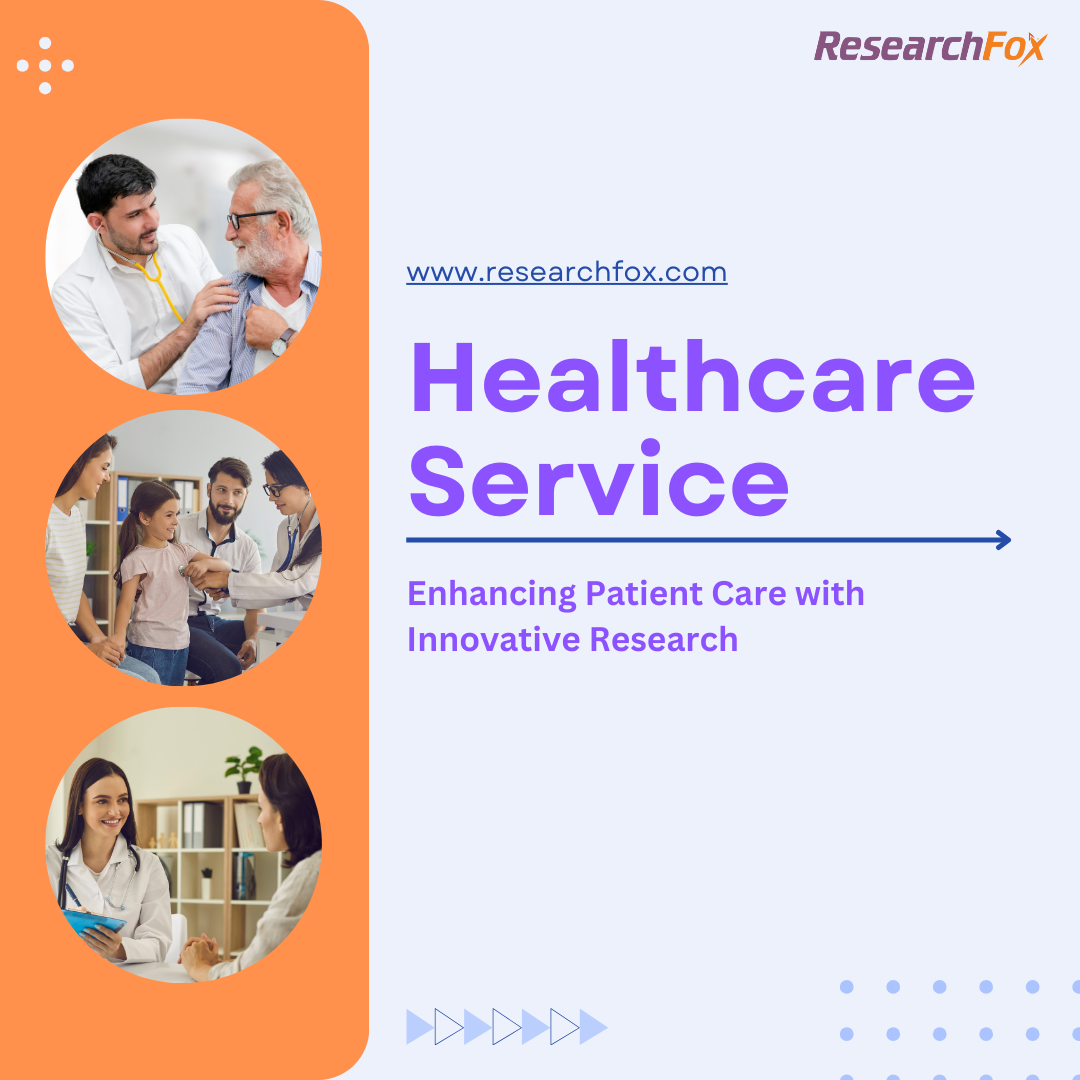
In the dynamic and ever-evolving landscape of healthcare, understanding patient needs is paramount. Both qualitative and quantitative research methods play a crucial role in achieving a comprehensive understanding of these needs, ultimately leading to improved patient care and innovative medical solutions.
The Dual Approach: Qualitative and Quantitative Research
Qualitative and quantitative research methods each bring unique strengths to the table.…
Read More
The Changing Palate: Indians’ Attitudes Towards Innovative Approaches in Traditional Cuisine
Author:
- May 15, 2024
- Category Market Research
- Comments

In effort to get to the essence of Indian cuisine, our team started on an interesting research study that went beyond taste testing. It was a passionate investigation into the heart of Indian culinary traditions and the possibility of integrating new flavors into this rich assortment. Our goal to discover how new biriyani varieties could complement the classic Indian palate…
Read More
Creating the Pinnacle of Coffee Experience: A Study of Consumer Desires
Author:
- May 07, 2024
- Category Market Research
- Comments

It is very important for Quick Service Restaurants (QSRs), to critically understand consumer preferences of their potential customers since the food and beverage industry is very dynamic and highly competitive. We recently conducted a research study where we carried out in-depth exploration of the coffee-drinking habits of individuals with an aim to closely examine the intricacies of consumer behavior and…
Read More
Introducing the Future of Online Education: A Cross-Cultural Perspective on India and the UK
Author:
- May 01, 2024
- Category Market Research
- Comments

In an ever-changing educational scene, the need to grasp our future generation's perspective is unquenchable. This interest led us on a 20-day journey across two continents with a team of four dedicated researchers, all driven by a single goal: to understand the complexities of the online education markets in India and the United Kingdom.
Our goal was clear, which is…
Read More
Personalized Care at Your Fingertips: The Rise of Patient-Centered Medical Apps
Author:
- April 17, 2024
- Category Market Research
- Comments
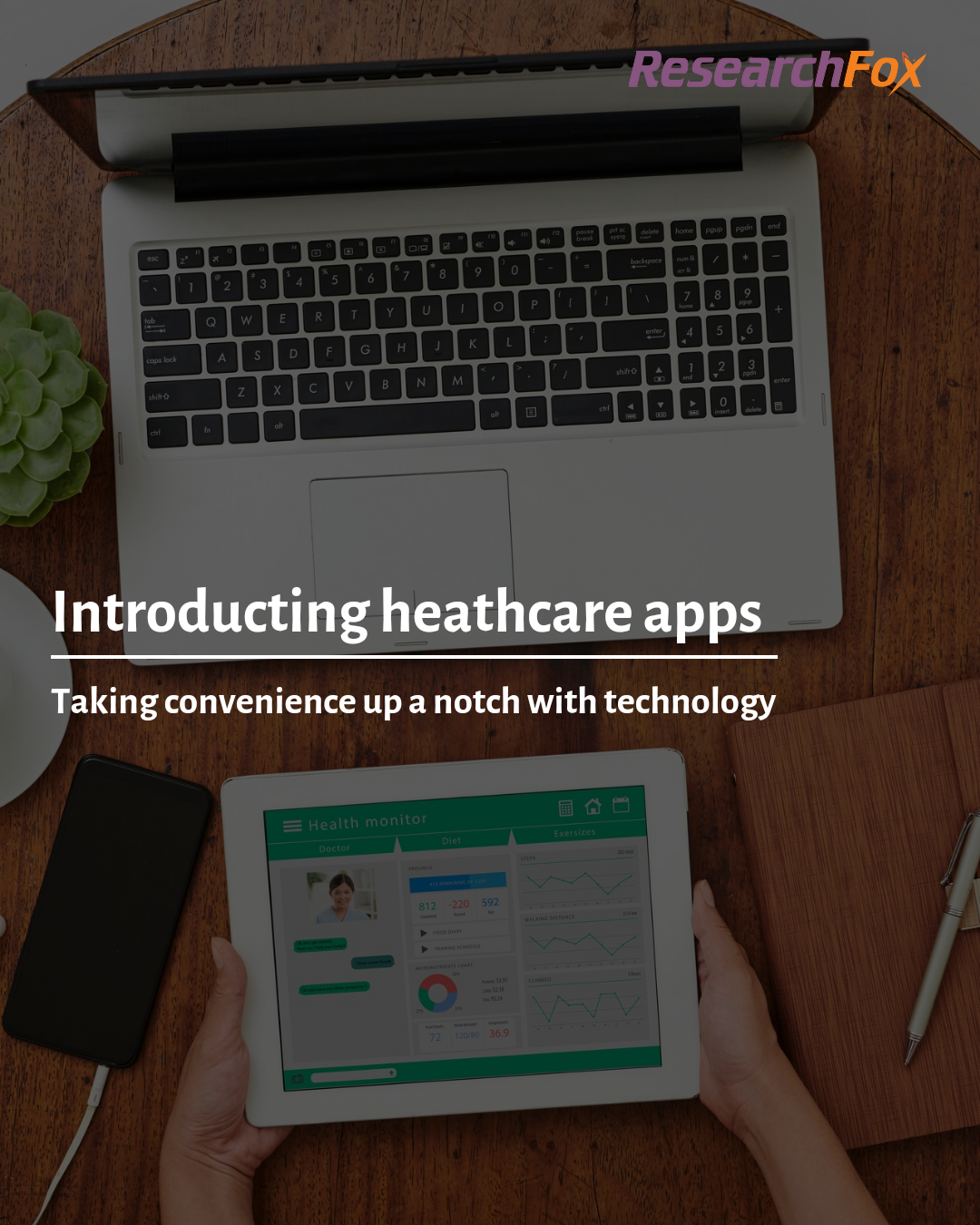
While the healthcare scene has been quickly developing, incorporating technology into medical services has not only become a trend, but also a necessity. An online medical application’s development suited to patients’ individual needs demonstrates this trend. Our research study covers a complex procedure and illuminates results of assessing patient requirements and expectations for the features and amenities provided by such…
Read More
Behind the Home-Buyer's Mind: An Appraisal of Influences and Implications for Real Estate
Author:
- April 08, 2024
- Category Market Research
- Comments

One of the most significant decisions in a person's life is usually thought to be purchasing a home. There is forethought, preparation, and thoughtful deliberation involved in this process. But what factors are involved when potential homeowners are about to make this kind of large investment? Our recent study sought to answer this question, and the results, which can offer…
Read More
Banking for the Affluent: Understanding the Banking Needs of HNIs
Author:
- April 02, 2024
- Category Market Research
- Comments
.png)
When managing the complex banking experiences of high-net-worth individuals (HNIs), we find ourselves at a crossroads between performance and expectations. What do these wealthy individuals expect from their financial partners? What makes them happy? What irritates them? Most importantly, how do their experiences compare to other banks? We asked these and other related questions, and the results may revolutionize the…
Read More
Regulating Fractional Ownership Platforms in India: Assessing the Potential Impact on the Real Estate Investment Landscape.
Author:
- June 01, 2023
- Category Consulting or Advisory
- Comments
The Securities and Exchange Board of India (SEBI) has released a consultation paper on fractional ownership platforms (FOPs). The paper proposes to regulate FOPs as a new class of investment vehicles. This would be the first time that FOPs would be regulated in India.
FOPs allow investors to buy a fractional share in a real estate asset. This means that…
Read More
"The Power of Design: How Vehicle Aesthetics Drive Consumer Purchasing Decisions"
Author:
- May 05, 2023
- Category Consulting or Advisory
- Comments

Driving Sales: The Impact of Vehicle Design on Consumer Purchasing Decisions
It’s no secret that the automotive industry is a highly competitive one. With numerous brands and models available, automakers must find ways to differentiate themselves from their competitors to attract consumers. One crucial aspect that can set a vehicle apart from the rest is its design. But just…
Read More
The Secret Ingredient: Understanding Pizza Base Quality through Market and Consumer Research
Author:
- May 04, 2023
- Category Consumer Research
- Comments

The pizza has become a popular food worldwide, and its base is one of the most crucial elements of the pizza. As such, it is essential to understand the quality of the pizza base and the acceptance of it by consumers. Market and consumer research play a vital role in this process, providing valuable insights into consumer preferences and helping…
Read More
Using Market Research to Identify the Ideal Locations for Battery Swapping Stations for Autos
Author:
- May 03, 2023
- Category Market Research
- Comments
"Raise A Glass To Success: How Market Research and Consulting Can Give Your Alcohol and Beverages Business a Competitive Edge"
Author:
- April 25, 2023
- Category Consulting or Advisory
- Comments
.jpg)
The alcohol and beverages industry is a highly competitive and dynamic sector, with constantly evolving trends and consumer preferences. For businesses operating in this space, it is critical to stay on top of market developments and understand how to leverage them to stay ahead of the competition. This is where market research and consulting come in, providing valuable insights and…
Read More
Understanding the Consumer Market by Analyzing Different Income Levels
Author:
- April 21, 2023
- Category Consumer Research
- Comments
.png)
Understanding the consumer market is essential for any company looking to sell a product. One important factor to consider when analyzing the consumer market is the income level of different groups of people. Income can significantly impact consumer behavior, and companies need to understand how different income levels can affect their sales and marketing strategies.
Here are some ways…
Read More
The Importance Of Market Research In Developing Skin Care Products For Different Climatic Conditions
Author:
- April 20, 2023
- Category Product Development
- Comments

Skin care is a vital part of personal care, and it is essential to maintain healthy skin in different climatic conditions. Skin care products are specifically designed to provide protection and nourishment to the skin, depending on the climate. Market research on skin care and its impact on various climatic conditions can help companies develop products that are suitable for…
Read More
Unwrapping the Impact of Packaging: How Market Research Shapes Consumer Perspective on Product Packaging.
Author:
- April 19, 2023
- Category Consumer Research
- Comments

Packaging is a critical factor that influences consumer behavior, and market research on packaging can help companies understand how it can bring a difference in consumer perspective. Packaging is not just about wrapping a product; it's about creating a brand identity and providing a unique experience to consumers. Effective packaging can attract potential customers, build brand loyalty, and increase sales.…
Read More
Rise Of Sustainable And ECO- Friendly Products In The Market
Author:
- April 18, 2023
- Category Emerging Trends
- Comments

In recent years, there has been a growing trend towards sustainable and eco-friendly products. Consumers are becoming more conscious of their impact on the environment and are looking for products that align with their values. As a result, many companies are starting to offer sustainable and eco-friendly products in response to this growing demand.
But how can companies know which…
Read More
Top 5 Emerging Technologies Shaping 2023
Author:
- April 17, 2023
- Category Emerging Trends
- Comments

As we step into the year 2023, the technology landscape continues to evolve at a rapid pace. In this blog post, we'll explore the top five emerging technologies that are set to shape the future of industries and businesses across the globe.
1. Artificial Intelligence and Machine Learning
Artificial intelligence (AI) and machine learning (ML) are expected to become even…
Read More
How to do effective market research for your business idea - Infographic
Author:
- August 13, 2021
- Category Market Research
- Comments

Got a business idea?
Let us look at best ways to do effective market research for writing a strong business plan
Writing your business plan starts with your business idea. As an entrepreneur, you need to conduct a feasibility check before you get into the action of writing a business plan and start working around it.
This article is a…
Read More
How did India's Gaming Industry rank In The Top 5 Gaming Markets Of The World.
Author:
- July 06, 2021
- Category Emerging Trends
- Comments

Online and mobile gaming is an emerging sector in India that has shown significant growth due to an increase in the wireless internet users and smartphone base, and changes in perception of gaming as a means of entertainment.
India recently ranked among the top 5 in the world when it comes to online gaming. There are currently more than 560…
Read More
COVID-19: Impact on consumer behavior and its implications for businesses.
Author:
- May 01, 2021
- Category Emerging Trends
- Comments
The COVID-19 pandemic is leading to transformations in the ways we travel, we eat, we shop, we communicate, and the way we socialize. These transformations and their acceptance have started accelerating along with the lockdown restriction back in March 2020 and many of them are expected to stay longer.
How has consumer buying behavior evolved after the enforcement of COVID…
Read More
The significance of market research in beta testing
Author:
- January 27, 2021
- Category Product Development
- Comments
Successful product base companies in B2B, B2C and B2B2C sectors, do lot of research and development before product launching into the market. Their success model is to build products with strong user acceptance testing, which includes Alpha and Beta testing. Alpha testing is usually done through the testers within the organizations, whereas beta testing is done through end users or…
Read More
Importance of research in today’s contemporary business world

The development of modern start-up companies is associated with entrepreneurial values, leadership skills and growth mind-set. Emerging companies are transforming the entire markets and industries with their innovative products and services. The development and evolution of rapidly growing start-ups are considering and acting on the fundamental requirements that make them to stand out in the market and provide innovation to…
Read More
Start-up Optimization Opportunities During Covid

The Covid-19 pandemic have brought life on the planet to a standstill affecting local businesses, start-ups and to a good extent the revenue of big corporates. As the number of cases rose, stringent lockdown measures were ordered and human activities came to a halt. With scarce cash reserves and stalled client projects in the service sector, the start-up ecosystem suffered…
Read More
Significance of Market Research for Small Business
Author:
- July 16, 2020
- Category Market Research
- Comments

Market Research has always been useful for small business for strategic decision making. They have been engaging market research activities at different stages of product planning and designing, development of market penetration strategies, business model validation, understanding competitive landscape, demand scanning etc. In fact, any size of business (small, medium, large) can go for market research, because the more you…
Read More
How marketers can succeed among evangelists and sceptics?
Author:
- April 30, 2020
- Category Market Research
- Comments

When we consider promoting a product into the market, the vast majority of people think about mass media marketing where radio, newspaper, television are used to advertise the products or brands to large audience which thusly helps in creating brand awareness and leads to sales conversions. Then comes the inbound marketing strategies where informative content drove the traffic to the…
Read More
QUARANTINE TIMES – MARKET RESEARCH TRANSFORMATION
Author:
- April 30, 2020
- Category Consumer Research
- Comments

Market Research is an industry that takes ages to adapt to new changes, but it saw the smoothest transition in Quarantine Times. Market Research has been built by knowledge sources and with great expertise. A huge collaboration of brand marketing, market research agencies, data collection, scripting, data processing and transcription teams, etc.
The critical and time-consuming process being the data…
Read More
Amendment of the FDI policy: veiling from the Chinese
Author:
- April 30, 2020
- Category Market Expansion
- Comments

During this time of global pandemic, where the earth is healing in its natural state, some of the companies in developed countries are jeopardized at the hands of opportunist takeovers taking advantage of their weak finances during the pandemic. Countries like India, Australia and some of Europe are taking stringent measures to protect their economy and initiating protectionist policies to…
Read More
E- commerce: Psychology Behind Cart Abandonment
Author:
- April 17, 2020
- Category Consumer Research
- Comments

E-commerce Cart Abandonments is the situation when online customers add items to the shopping basket and then leave the website before completing the purchase. Thus, it directly impacts on purchase conversions. Cart Abandonments can be calculated as 1- (number of completed transactions/ number of carts created). Various studies had revealed that, on an average cart abandonment is much higher on…
Read More
A Brand is All About Human Perception
Author:
- April 17, 2020
- Category Consumer Research
- Comments

Perception occurs from numerous point of view, communication is only one approach to perceive something. The difference between perception and communication is: Perception is the abstract inclination that comes as a result of the objective communication.
Communication is objective, while perception is emotional. Perception depends on various factors such as background of the individual, psyche, economic and social factors and…
Read More
Impact of COVID -19 : Sectoral View
Author:
- April 16, 2020
- Category Emerging Trends
- Comments

COVID - 19, has wiped the world from its day to day activities. Starting in the wet city of Wuhan in China, previously known as “2019 novel coronavirus” got spread as wildfire all over the world. As human beings continue to spend days locked up inside their homes, it is imperative that it will effect or change fundamentally the way…
Read More
Heyy Ecommerce!! Do you know the Offline Pricing well
Author:
- August 13, 2019
- Category Consumer Research
- Comments

While the young and internet savvy generation of India is driving the ecommerce businesses, the retail space is organised as well as unorganised too.
Both online and offline players have their own pros and cons. Contradictory to offline business that allows customers to ask for their preferred prices during the course of bargaining/negotiations on the MRPs, in online businesses bargaining…
Read More
Brand Cannibalization – A Threat or an Opportunity
Author:
- August 13, 2019
- Category Consumer Research
- Comments

Brand cannibalization is a very commonly used term in the modern business world which denotes sales reduction of a particular product due to launch of new similar product in the market by the same company. In other words, brand cannibalization leads to loss of customer base or demand for an existing product through customer diversion to a new product. It…
Read More
Retailers must do: BARRIERS AND FACILITATORS STUDY
Author:
- June 20, 2019
- Category Consumer Research
- Comments

“A brand is no longer what we tell the consumer it is – it is what consumers tell each other it is”. SCOTT COOK
Understanding a potential buyer and convincing them to buy a product/service is a difficult task to a marketer. As each buyer has their own reason to make a purchase, the marketer must make sure to…
Read More
Shopping with the Consumers !
Author:
- June 10, 2019
- Category Consumer Research
- Comments

Among various data collection methodologies like observation, face to face interviews, online surveys, telephonic interviews in market research, accompanied shopping research is one of the innovative research methods. The objective of this research method is to observe the customer’s buying behaviour and responses in the real environment where they shop. This methodology is similar to observation research, one of the…
Read More
Do you think over the top (OTT) services have impacted our lives?
Author:
- May 27, 2019
- Category Market Research
- Comments

Where do you watch your favourite series and talk shows if you happen to miss the episode on your traditional cable or satellite TV? The answer is obvious, we use the video streaming applications available online on demand anytime and anywhere. These applications are built using an OTT (Over-the-Top) platform, which can be used to access the videos through the…
Read More
Mystery Price Audits - A must for Retailers !
Author:
- May 24, 2019
- Category Consumer Research
- Comments

Mystery audit is an effective research tool used to evaluate the quality of Consumer-brand interactions and aims to improve customer experience. This will also be an effective tool for the ecommerce players to positioning their products at right price which take them ahead in competition. Price audits is a form of mystery audits and are carried out with…
Read More
Implementation of Adaptive Learning Technology in Corporates and Educational Industry

Does your School, Institute or company use traditional learning techniques and you find difficult to understand many concepts? Then, there is a happy news for you as learning is going to be most interactive, fun and adaptive in the coming years. Schools, Institutes and companies around the world are trying their best to implement Adaptive Leaning Technology with a vision…
Read More
fyxtfipyxi
Author:
- February 14, 2019
- Category Research and Development
- Comments

<p>
Tiles and stones are used on surfaces such as walls and floors for its functional properties, as well as its ability to enhance the visual appearance of buildings, houses and other structures. But before you begin the process of tiling, or using stones, it is necessary for you to consider which bedding adhesive will give you optimal results. This…
Read More
Does our Drowning Planet Need Floating Power Plants?
Author:
- February 13, 2019
- Category Emerging Trends
- Comments

Without doubt burning fossil fuels is destroying our planet, yet, it continues to be our primary source of energy. Even in 2019 around 70% of our electricity comes from fossil fuels, fuelling rising global temperatures. As our population increases our energy consumption will also increase substantially. Additionally, currently roughly 1.2 billion people do not have access to electricity. Primarily because…
Read More
Spinal Implants – A proven remedy for severe Vertebral Defects
Author:
- August 10, 2018
- Category Emerging Trends
- Comments
.jpg)
Are you wondering why does your back hurt? Are you experiencing back pain? Back pain often happens because something is off in the way your spinal joints, muscles, discs and nerves fit together and move. It is estimated that back pain affects about 80% of adults at some point in their lives. It is estimated that around 25% of adults…
Read More
Rise of mobile wallets - A dynamic shift to new era of Economy
Author:
- August 01, 2018
- Category Emerging Trends
- Comments

Do you ever come across a situation, where you have abruptly realized that you left your wallet at home while purchasing a gift to surprise your dear ones? Have you realized that with just a smartphone, you can make your shopping experience joyful and hassle free? Luckily you got a popup on your smartphone from PayPal app, giving you a…
Read More
Focusing on Core functions and Engaging with suitable Market Accelerators can make the startup journey successful.
Author:
- July 19, 2018
- Category Consulting or Advisory
- Comments

The acquisition of majority stake in the Indian e-commerce startup, Flipkart, which has been a posterchild of tech startups in India for over a decade, by Walmart, is a testimonial to the maturity of the Indian Startup Ecosytem, which has seen 12 uniconrs (> USD 1 Bn in Valuation) until now, and 34 more is expected to join the unicorn…
Read More
GLOBAL NUTRACEUTICAL MARKET – EMERGING REMEDY FOR MILLENIAL WELLBEING
Author:
- July 11, 2018
- Category Emerging Trends
- Comments

Have you ever wondered if your diet contains all of the nutrients you need? Does the food you choose to eat regularly consist of natural, pure whole foods? Are you experiencing unwanted symptoms such as lack of energy, stress, pain, weak immunity or allergies, digestive challenges, ageing effects, inflammation, and genetic weakness? Well, there is a breather for you –…
Read More
Testing the market need for product innovation – An Energy Drink Story
Author:
- May 01, 2018
- Category Consumer Research
- Comments

Frequency of purchase is one of the obvious ways to find out consumer attitude towards your energy drink. But have you stopped to think of what kind of energy drinks appeal to consumers generally? Is it an organic, inorganic or caffeinated drink that manages to keep the taste- buds of your consumers hooked? The refreshing thing about the energy drinks…
Read More
The Roadmap for Indian Startup Ecosystem – Trends in 2018
Author:
- February 20, 2018
- Category Emerging Trends
- Comments

Indian Startup Ecosystem is maturing to provide more B2B focused solutions. Nearly half the firms founded in 2017 operate in the B2B space, after nearly a decade of dominance by e-commerce and ride-hailing startups in the ecosystem. With such prolific growth, the B2B segment has also caught the attention of investors, with significant funding growth seen for B2B startups year on year.…
Read More
Hospitality Sector- Ready for disruption?
Author:
- January 03, 2018
- Category Emerging Trends
- Comments

Disruptions in businesses are not a rarity in today’s world. But there are sectors which accepts change yet cling on to the traditional means. They do not want to let it go by giving a nod, in a subtle way, Henry Ford, who said, “People could have a Model T in any color they want as long as it’s black”.…
Read More
The On-demand generation and Rise of Platform Economy
Author:
- December 13, 2017
- Category Emerging Trends
- Comments

Today’s business ecosystem has evolved rapidly, and novel business models are created to improve efficiency and market conditions. In recent years, we have seen billion-dollar firms emerging by leveraging the demand and supply mismatch. With the rise of platforms and aggregator model, the core of the value creation has shifted from creation to connection; from delivering value to facilitating value;…
Read More
Start-Up Feasibility

Homework (start-up feasibility)!!
Yes, you can wonder about the headline!
But it’s not exactly what you are thinking about homework.
This is purely indicating start-up homework!
Let’s move to our topic.
Are your start-up activities feasible?
By the way, the article is also commencing by asking a question. Of course, new ideas and developments are born out…
Read More
Health Care Management Systems
Author:
- October 11, 2017
- Category Knowledge or Information
- Comments

“The Greatest Wealth is Health.” - Unknown
The above quoted 5 words are said by an unknown person, which can be readily used to identify an industry which is becoming expansive and evolving rapidly.
Two words, Healthcare and Management, put together to form a perfectly concocted mix of Health Care Management System – which has conveniently possible and more accessible,…
Read More
Titbits on Global Health Care 2017
Author:
- September 12, 2017
- Category Knowledge or Information
- Comments
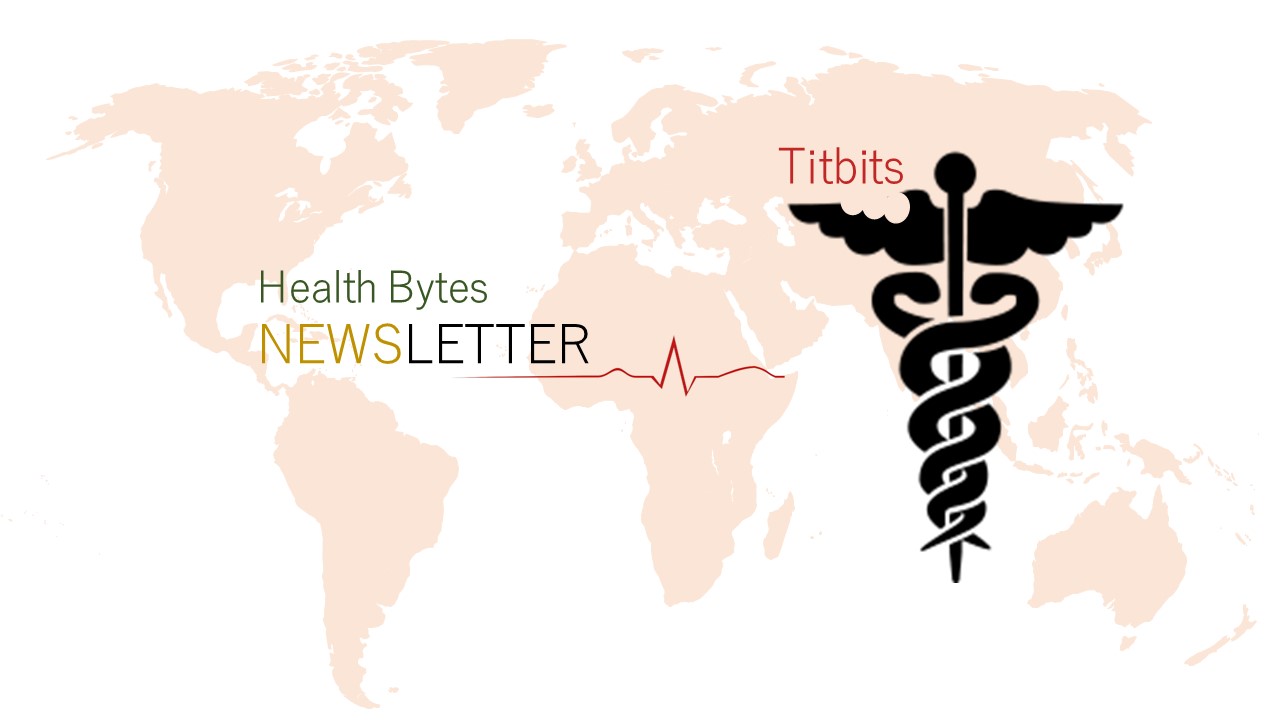
Titbits on Global Health Care 2017
Global health care expenditures are projected to reach $8.7 trillion by 2020 driven by improving treatments in therapeutic areas (TA) coupled with rising labor costs and increased life expectancy.
Communicable diseases are an ongoing threat. HIV-AIDS continues to affect 36.9 million people worldwide, with around 70% of them living in Sub-Sahara Africa.
The Zika…
Read More
Health Care - THE NEWS LETTER
Author:
- June 13, 2017
- Category Knowledge or Information
- Comments
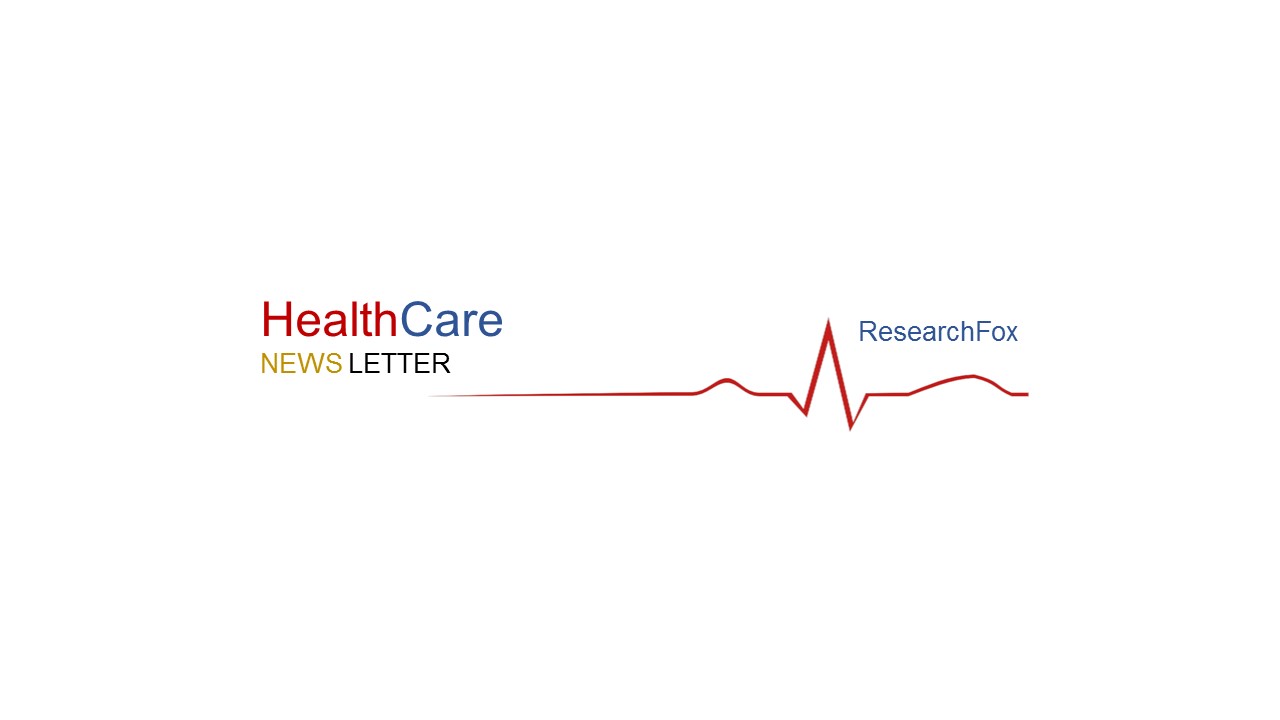
Digital Health:
Augmented Reality will enhance the medical procedures
21st-century technology revolutionized Healthcare Industry, paving its way in Augmented Reality & interactive Virtual Reality (VR) to revamp healthcare education and radiology. Recent technology advancement shows how augmented reality can enable faster operations and better care. It can aid in medical education by training physicians without dissecting a cadaver, an interactive…
Read More
Backup Storage Solution is the Backbone of Cloud Storage
Author:
- April 11, 2017
- Category Market Research
- Comments

The notion of Cloud Storage was originally sowed in early 1960 but it was introduced in 2006 by Amazon Web Services. The means of Storing data in an Enterprise have been changed over few decades. These changes of storage had been seen because of intensifying corporate digital data and their stipulate for more storage at least cost with least maintenance.…
Read More
Experiential Marketing — Key to win Customers
Author:
- February 28, 2017
- Category Emerging Trends
- Comments
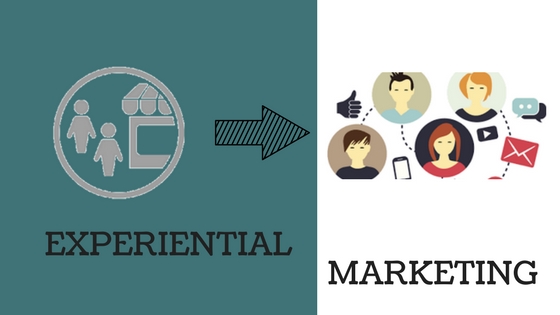
Ever noticed a fruit seller offering a slice of watermelon or a mango to taste before buying it? Or have u been on a test drive in your favourite car you wish to buy Or smelt the aroma of Bru Coffee on a newspaper? Yes! Am pretty sure most of us have witnessed one or two such instances which prompted…
Read More
Quantitative Vs Qualitative Research – Which is better for Decision Making?
Author:
- February 09, 2017
- Category Market Research
- Comments

Most of the people who are slightly snobby when it comes to research would say that quantitative research is much more scientific and therefore much better, satisfactory than qualitative research.
Quantitative research is the factual investigation of the research question using scientific methods. The results assembled are numerical, and can therefore be evaluated statistically to answer the hypothesis. Qualitative research…
Read More
The CRD (Create, Reach, Deliver) Model for Business Model Design and Winning Market Dynamics
Author:
- December 23, 2016
- Category Product Development
- Comments
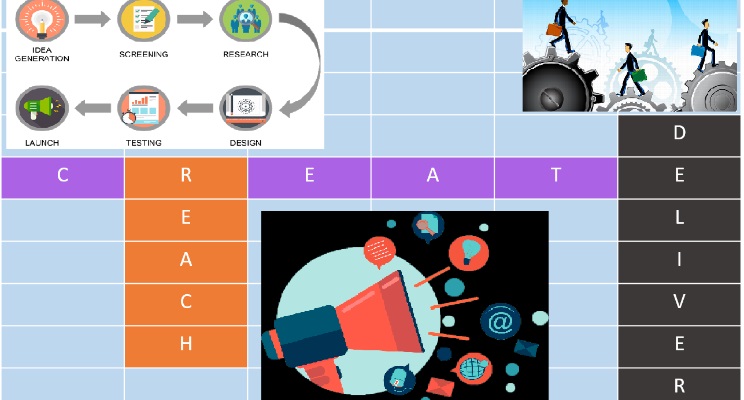
In any business, whether you are in product or service; offering it to Consumers or Businesses or hybrid, the three pillars of business mix or business model design are - CREATING a top-notch product/service, REACHING to your consumers and DELIVERING the core value which the consumer needs. It is important to ponder about the three key questions which defines the…
Read More
Business Research - Trend is going up for Startups
Author:
- December 07, 2016
- Category Market Research
- Comments
"Business research" is broad -- it could mean research for, by or with the business. Business research can be a lot of things. This might be merely you or someone you hire who hunts the Internet for information about markets, competitors, companies, etc. It can be understanding annual reports or analyzing websites and making conclusions.
Business Research is primarily to…
Read More
Impact of Demonetization Vs RBI’S Monetary Policy – Will Enhance the Economic Growth?

Narendra Modi's outlawing of high-value banknotes last month, aimed at curbing corruption and tax evasion, has left the nation's 1.2 billion population scrambling to exchange old notes for new and left many companies' cash-reliant supply chains in tatters.
India's economy expanded 7.3 percent in the July-September quarter from a year earlier, making it the fastest growing major country in the…
Read More
The age of Connected Mobility - Telematics Uncovered
Author:
- November 18, 2016
- Category Emerging Trends
- Comments

The automotive industry is on the verge of a massive transformation due to the entry of disruptive new age tech players in the market. The mobility ecosystem is witnessing novel business models to cash on the technology evolution and the changing preferences of the consumer, especially the Millennials. We already are witness to the gradual obsolescence of the conventional ride…
Read More
IN DIGITIZED WORLD: HOW MARKET RESEARCHERS AND TECHNOLOGY BOOST UP BUSINESS BRAND EQUITY
Author:
- October 05, 2016
- Category Market Research
- Comments

Digitalisation has changed the trend of marketing and market research. It is an era of digital marketing where promotion of brands, products, or services is done through electronic media, such as the Internet, mobile instant messaging, social media and mobile apps. Market research has also evolved from pen-and-paper surveys, one-on-one interviews, and focus group discussions into something more mobile, instant…
Read More
Business Consulting Services: means to streamline your business
Author:
- October 05, 2016
- Category Market Research
- Comments

With the advancement of business environment over the last few decades, business grows, crossing the boundaries defined by limited internal resources. As time lapse, many companies face complex challenges of their local and international competitors and tackling them is a new challenge. To handle the complex challenges business houses of all types and sizes depend on external professionals, management consultants, who analyse…
Read More
P(re)tail – The Metamorphosis in Commerce
Author:
- September 30, 2016
- Category Emerging Trends
- Comments

The term “Commerce” has got multiple facets which includes online commerce, brick and mortar commerce and mobile commerce. However, the purpose served by all these sale channels is to guide businesses to reach consumers effectively, and to gauge the consumer experience through their feedbacks.
What it would have been if consumer’s expectations turn in to reality. Imagine, if your product…
Read More
AI Vs IoT – Who wins the race?
Author:
- September 30, 2016
- Category Innovation
- Comments

Obviously AI, but how?
Answer - IoT won’t work without artificial intelligence. The Internet-of-Things provides us with tons of sensor data. However, the data by themselves do not deliver value unless we can turn them into actionable, contextualized information. AI (Machine learning), Big data and data visualization techniques allow us to gain new insights by batch-processing and off-line analysis. Real-time…
Read More
UPI Disruption – Is it going to happen?

Because India is a cash-based economy and Retail payments in India are dominated by cash. Only 6-7% of transactions here are directed electronically and the rest are in cash or cheques.
India continues to have low credit card penetration and low debit card initiation leading to a poor reach of electronic payments—still in single digits.
What is UPI?
UPI is…
Read More
The tipping point of user engagement – Gamifying the Pokemon Way
Author:
- August 01, 2016
- Category Emerging Trends
- Comments

These days you can find people glued to their smartphone commuting long distances just to find a creature and catch it, well the creature could be a dinosaur, a snake, or any other for that matter. Does this sound insane? Then switch from the mode of imagination to reality, I am discussing about Pokémon, a child hood fantasy game that…
Read More
Digitizing the Retail Experience
Author:
- June 14, 2016
- Category Emerging Trends
- Comments

As Consumers become more demanding, and expect the digital world to pervade in to all touchpoints of thier life, brick and mortar retail stores are no exception. There is rapid proliferation of technology in retail, as stores want to bridge the gap between digital and physical. This is done by building Omni-channel strategies, delightful and engaging customer experience to position…
Read More
PHD Concept – Passion, Hunger & Drive of the Startup

Sounds minimal unexpected in nature so it has diverse importance. PHD stands for Passion, Hunger & Drive are the driving forces for a startup to sustain in the market. Once Steve Jobs quoted that “You have to be burning with an idea, or a problem, or a wrong that you want to right. If you’re not passionate enough from the…
Read More
Value Chain of Unmanned Decision Science Industry
Author:
- April 29, 2016
- Category Knowledge or Information
- Comments

True to the statement by Alan Key, a noted Computer Scientist, who said that The best way to predict the future is to invent it, recent trends in technology has brought about a sea change in data intelligence and decision science which comprises of collection, processing and application, thereby completing the full cycle of the value chain involved in automated…
Read More
Digital disruption is more than a Buzzword!!
Author:
- March 04, 2016
- Category Market Research
- Comments

Everyone is wondering (and few are worrying!) about digital disruption taking place across industries. This is bringing the most impact on business. It is actually the change brought forth by new digital technologies along with strong business models, which threaten the value proposition of the existing incumbents. Innovation and disruption are constant in this dynamic world. Any business which is…
Read More
Digital Wallet – Let’s Get Digital
Author:
- March 01, 2016
- Category Knowledge or Information
- Comments

Sounds not new but purely changing the traditional mode of payment. If we look at 20 years back, people used to carry hard cash in their wallet to make a payment and still in rural places, where technology, infrastructure is not occupying one’s mind, people prefer traditional wallet to carry cash over Digital wallet. In rural places where people are not…
Read More
Think Social Media before Launching a Product/Service
Author:
- March 01, 2016
- Category Knowledge or Information
- Comments

I firmly believe that most of the organizations are relying on social media nowadays due to their broad reach and provides the best option for the corporations to determine the how good they are in the context of customer or market reach and product visibility. Social media not only increasing the website visibility, product sales, generating leads, building networks, it…
Read More
Sentiment Analytics – Tool for Better customer Engagement
Author:
- February 26, 2016
- Category Consumer Research
- Comments

Sentiment Analytics is not a new concept in business ecosystem, it exists even before the concept of branding has evolved. At early stage, customer sentiment was gathered from word of mouth. Later primary Market research is used as an effective tool to get opinion from customers about their brand, their likes and dislikes. Even today many companies rely on Market…
Read More
What's Your Competitive Advantage (WYCA)
Author:
- February 23, 2016
- Category Entrepreneurship
- Comments

Start-up and established conglomerates ponder about creating or pivoting their business models and have serious questions like what business model to choose, which will give a competitive advantage, which will be the right fit for us. Creating an innovative business model which is disruptive is as important as creating a product with unique value proposition. As Harvard Professor Michael J…
Read More
Brand Bible: A Guide to Building, Designing and Sustaining Brands
Author:
- February 23, 2016
- Category Consumer Research
- Comments

Companies invest money in creating logos, ads, marketing materials, packaging, and so on and then wonder why they’re not getting the results they expected — or they might assume that they can’t get better results. However, had they invested in brand research along the way, their stories could have been quite different.
What is Brand Research?
Research carried out to…
Read More
Mystery shoppers : The unique way to check service standards and employee integrity
Author:
- February 12, 2016
- Category Market Research
- Comments

Collecting feedback from customers is just the same old thing, however the appropriation of Customer Satisfaction projects has turned out to be more far reaching with the advent of innovations. It is pertinent for an organization to understand the underlying value of meeting up day to day expectations by adhering to its SLA’s. One way to ensure that organization is…
Read More
Stay ahead of your consumers – segmentation continues to create opportunities for growth
Author:
- February 12, 2016
- Category Market Research
- Comments

A firm cannot devise a market strategy without market segmentation. If firms don’t do segmentation, they do not know whom they have to sell and what they have to sell. Segmentation is an effective method to increase the focus of a firm on market segments.
So exactly what is market segmentation?
Market segmentation is sizing a market which involves dividing…
Read More
mHealth Shaping Rural Healthcare in India
Author:
- February 01, 2016
- Category Innovation
- Comments
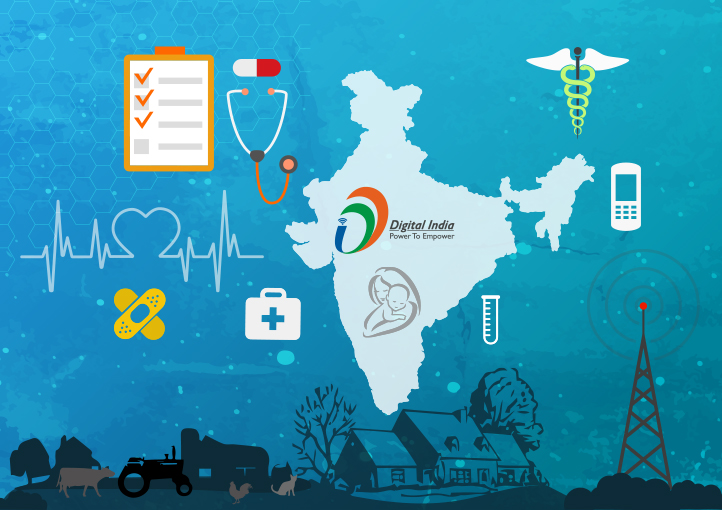
India is the second most populous country in the world with an estimated population of 1.27 billion. Nearly 70% of India’s population lives in rural areas out of which half belongs to the Below Poverty Line class. According to recent surveys, over 60% of the rural population doesn’t have access to healthcare facilities. Hence, the death rate due to epidemics…
Read More
Its ‘App’ening Time for the Government
Author:
- January 27, 2016
- Category Emerging Trends
- Comments

Imagine a scenario where a farmer sitting in a remote village of India getting a notification on when and where to sell his crop yield to obtain best price. This would soon be a reality if the penetration of smartphone grows beyond the urban population and reaches out to the remote villages of India.
India stands third in terms of…
Read More
Startups making its presence felt in the Indian Television Ads business

Someone from the internet fraternity defines prime-time as “the time at which a radio or television audience is expected to be at its highest”. While the Indian prime-time shows ideally include adrenaline pumped debating sessions and highly dramatic “reality-shows”, companies bet on putting the big money to showcase its products to the viewers on such time slots.
Remember the days…
Read More
Will Blockchain devastate Banks???

Blockchain - a revolutionary technology is grabbing more attention these days since it is going to be a game changer in financial sector. Eventually, Blockchain was developed to support crypto-currency transfer but several researches in the Fintech industry evaluates on how to effectively use Blockchain technology to optimize conventional transaction processes and cut down cost.
In general, an international money…
Read More
Why market research is vital for a Start-up
Author:
- December 23, 2015
- Category Market Research
- Comments

According to numbers from GEM (Global Entrepreneurship Monitor) of international businesses, worldwide approximately 300 million persons trying to start about 150 million businesses. Among these 150 million businesses one third will be launched, say 50 million new firms per year. I would say by the time you finish reading this sentence almost two to three new businesses are getting launched.…
Read More
Location Based Service, a new way of marketing for retailers
Author:
- December 16, 2015
- Category Market Research
- Comments

The growth of smartphone and tablets has given rise to many new technologies and the addition of other technologies like GPS has made it to stand out. We all know that GPS technology largely finds its application in navigation related services. Whenever we need to visit a known or unknown place, we just switch-on our GPS and get the correct…
Read More
Market Research aiding Startup Investors
Author:
- December 05, 2015
- Category Market Research
- Comments

We come across frequently that xyz startup joins the Billion Dollar club or abc startup had a successful IPO, or news about large acquisition happening and so on. While referring a Forbes post “Nine out ten startups will fail”, shocking isn’t it? It is tough to digest that failure rate of the startups is so high.This makes us wonder what…
Read More
How start-ups can pitch better

Good startups fund themselves to grow while great startups knock the doors of right Investors to grow. Now the startups going to Investors is an inorganic way of growing i.e. they make use of Investor’s money to scale up. Convincing the Investor on your dream/product/platform is not an easy task as it sounds. To deliver a “Right Pitch” you need…
Read More
Israel and “The Startup Nation” slogan: Delivering cyber-security through technical excellence
Author:
- July 10, 2015
- Category Market Research
- Comments

Over several years, Israel has often been in the news due to its geopolitical dialogue with Palestine on issues of mutual recognition, geographical borders, water sharing and many more. But the country is largely famous for its religious diversity: Judaism, Christianity and Islam; the old city of Jerusalem; the camel market and the famous Tel Aviv University which has supplied…
Read More
Mobile Device Management Crafted To Fly High by Continuous Progression in Its Features
Author:
- April 16, 2015
- Category Market Research
- Comments

With the proliferation of devices like Laptops, Smartphones and Tablets, the Enterprise companies have started to realize that they could be productive and cost effective only by adopting these devices for organizational purpose. But they also well understand about strict guidelines and strong set of policies need to be put in place to reap its benefits or else could go…
Read More
NLP: Understanding Human Language for Better Decision Making
Author:
- March 27, 2015
- Category Market Research
- Comments

With growing computational capabilities, every kind of businesses are employing computers, smart phones and other similar devices to make their day-to-day operations simpler, quick and effective. Among the technologies that are creating some buzz in this direction include the natural language processing technologies. Natural language processing or simply NLP, in simpler terms refers to a part of artificial intelligence and…
Read More
India Hiring: Reflections - 2014 & Untangling knotty talent acquisition in 2015
Author:
- January 13, 2015
- Category Hiring or Recruitment
- Comments

We have seen extremely positive vibes in 2014 where there are four broad factors contributing significantly to a reinvigorated hiring scenario. These are:
A Stable global economy
Much of the western markets are in a GDP growth mode and business and hiring sentiments are bullish globally. The incremental, but steady, job creation this is resulting in is particularly visible…
Read More
Cloud Security: Securing Business on Cloud
Author:
- November 25, 2014
- Category Market Research
- Comments

As more and more businesses are moving into cloud, cloud security has grown to be more important than ever before. The instances where miscreants attacking the cloud infrastructure of Target retail, Home Depot and other banks, points to the fact that businesses require to take necessary steps before venturing into the cloud. Earlier businesses were of the misconception that cloud…
Read More
Wireless Health - A lifeline towards better Healthcare service
Author:
- November 21, 2014
- Category Market Research
- Comments

The global wireless health market is witnessing a positive dynamics with advancement in wireless information and communication technologies.
Adoption of wireless technology is seen more in the medical communities and physicians to connect real-time. Rapid growth in the mhealth has improved the patient and physician convenience. North America is the biggest market for wireless health because health sector in the…
Read More
Wireless is fuelling the future of Healthcare Information Technology
Author:
- November 21, 2014
- Category Market Research
- Comments
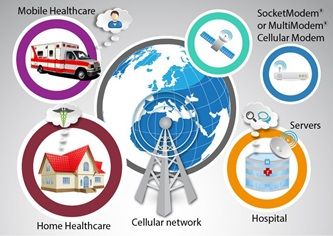
Technology has become a critical component in healthcare. It is not only a lifesaving factor but also gives a sense of reliability. Wireless technology in healthcare acts as a medium to bridge the gap between patient and doctor not only with accurate and up-to-date information but also enhancing treatment efficiency and reduction in healthcare costs.
More and more healthcare organizations…
Read More
Managing Enterprise Security through Mobile Device Management
Author:
- June 24, 2014
- Category Market Expansion
- Comments
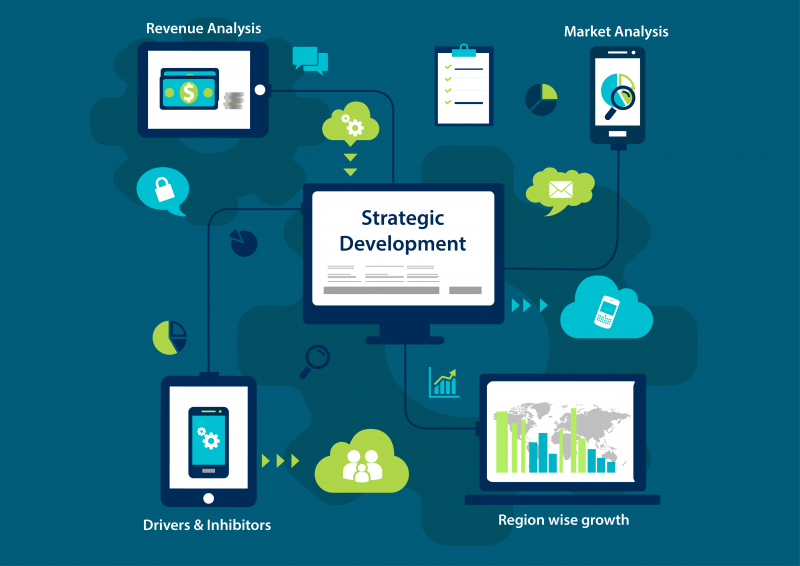
Over the years there has been tremendous growth in the usage of Mobile and Smart phone devices, which has led to concepts like BYOD, COPE. With these advanced concepts, corporate allow their employees to access information from any location and help them with more flexible work structure.
With more usage and advancements there was a need of providing security and…
Read More
What does natural disaster mean to the DR-as-a-Service market?
Author:
- June 13, 2014
- Category Market Research
- Comments

Human kind has always been a silent observer of natural disasters creating havoc worldwide. Be it the earthquakes of Japan, China and Indonesia or the hurricanes of US and Canada; we as human beings have always felt helpless. This is no different for great companies dealing with customer data and business secrets. They understand the importance of having a DR…
Read More
Identity and Access Management to spearhead the new era in Enterprise security market - An Insight
Author:
- June 09, 2014
- Category Emerging Trends
- Comments

With the passage of economic crisis since 2011 the global market had experienced economic recoveries and organizations have accumulated the budget to make investments in IAM projects in which the benefits with regard to expenses are realized within the mid to long term.
ResearchFox analyzed the gaps between the expected and realized benefits of IAM projects which were the most…
Read More
Global Healthcare Analytics Market Witnessing The Healthy Growth - A Review
Author:
- June 09, 2014
- Category Emerging Trends
- Comments
Jun 9th, 2014 · Comments Off
We exist in the Universe, that is data-driven, where thousands of records, messages, pictures and opinions are composed through abundant sources. Analytics can convert these facts into actionable insights, process improvements and predictive approaches, which would dramatically influence the attainment of a health care system.
Healthcare Analytics systems disclose and comprehend chronological patterns of statistics…
Read More
SMAC - Is it the next big thing?
Author:
- May 23, 2014
- Category Innovation
- Comments

Mankind has witnessed one of the fastest ever adoption of technology in the history. The whopping smart mobile devices sales suggests that customers are becoming more and more tech savvy and prefer to remain connected with the world at all times.
What is SMAC?
SMAC stands for Social, Mobile, Analytics and Cloud, all this on an integrated technology stack. This…
Read More
Reverse brain-drain, destination India
Author:
- May 21, 2014
- Category Emerging Trends
- Comments

Last Saturday evening, one of my close friends received a call from his cousin aiming to pursue his master’s in business management while we were in sound mood of discussing the recent success of “2 States”- the recent Bollywood super-hit. What I derived from his one way conversation over the phone (though I assume that there were heated arguments from…
Read More
World Cup Brazil: Opportunity for Startups
Author:
- May 08, 2014
- Category Knowledge or Information
- Comments

Brazil is going to host 2014 FIFA World Cup and everyone's eyes are on Brazil. The bookies favorite team is Brazil and even this year my favorite team is Brazil. I have noticed that most of the world class events are happening in developing nations which are actively participating and winning hearts by miles. I came across Brazil mainly for…
Read More
How prepared are you for recruitment in 2014?
Author:
- March 31, 2014
- Category Hiring or Recruitment
- Comments

The recruitment industry has been in a state of flux for the last several years and is evolving as I write. Market behavior, diminished budgets, increasing demand for specialized skills set, the reliance on sophisticated metrics to understand hiring patterns has put a whole lot of demand-supply pressure on Human Resource departments and business leaders to stay ahead of the…
Read More
Psychological relationship between consumer and brands
Author:
- March 20, 2014
- Category Market Research
- Comments

With the advancement of technology and understanding the consumer psychology of brands, has gained importance over the in the last few years in the academic and the corporate world. Here we have highlighted the relation between a consumer and the market brands and the various influential factors affecting it.
In this age of Neuromarketing, consumers are overburdened with information…
Read More
2013 Impactful Recruitment Methodologies - Will continue to remain important in 2014
Author:
- March 17, 2014
- Category Hiring or Recruitment
- Comments

Six major corporate recruiting methodologies that have been prominent during the last year which will continue to be significant corporate recruiting trends during 2014 .
1 The mobile platform - Critical tool – even though last year was “the year of the mobile platform,” the impact of this platform in recruiting will continue to expand and grow. The emergence of…
Read More
hacked by sixenn45

Ask yourself before reading this blog…
Are you a market research employee or working with consulting companies?
Most of your time is spent searching on Google?
Mostly involved in secondary search?
Are you not able to get what you are looking for in Google?
If your answer is “Yes”, then you must read this blog to make your time more…
Read More
The Indian Start-up Culture: A new trend in business

So far India has often been referred to as the outsourcing hub of the world. Whether its high end technological development in fourth generation optical discs or back office credit card processing, Indians have always drawn the credit (or otherwise, if you want to argue). The world has been hyping over the various emerging technologies but silently & suddenly without…
Read More
SMB MARKET - Do we understand their core technology challenges?

Nine years ago I was introduced to SMB market place at an ITES company; however the biggest challenge I faced was the learning curve and ability to understand the SMB market. We are all told till date that large corporations are better as firstly they are ‘large’ i.e. huge amounts of disposable budgets thus it was every salesperson’s goal to…
Read More
Cloud computing a morale booster for Indian SMBs

Cloud computing is a buzz word for a number of small and mid sized businesses, with a mounting gratitude of the value it can offer. But feedback from the sector indicate that many companies still struggle with what exactly cloud computing can do for them.
The major character played by cloud service providers was not only to offer various applications…
Read More
5 Software Product Myths in Gems and Jewellery Industry
Author:
- February 28, 2014
- Category Knowledge or Information
- Comments

Gems and Jewellery industry is one of the highly fragmented industries and is characterized by a family owned business. In the current scenario, the rules of operations in SMBs are changing. I had several discussions with Gems and Jewellery owners working in different segments of jewellery wherein various myths were discovered out of which the top five as mentioned below.…
Read More
Leadership Crunch: Have we stopped to produce enough leaders?
Author:
- February 27, 2014
- Category Entrepreneurship
- Comments

The country has managed to produce innumerable managers over the past one decade or so. Thanks to the liberalization policies of the Indian Education System, it has boosted the mushrooming of large number of colleges, especially the professional institutes. With the 1991 economic reforms in the country, the nation had opened its gates for foreign investments. Multinational corporations had invested…
Read More
Information Technology Outsourcing - An Enigma in itself
Author:
- February 27, 2014
- Category Knowledge or Information
- Comments

When companies across the globe were moving their bases to a certain country named India just to attain cost advantage, there were companies trying to innovate and eliminate various redundancies presented by the industry. Upcoming zones like near-shores also started filling the void.
To battle the issue of time zones in APAC with clients residing in developed countries like USA, the concept…
Read More
Market Research - Is it a must for startup business?
Author:
- February 26, 2014
- Category Market Research
- Comments

When I started my first startup, I had little knowledge about the market and the customer. It was all started because of the passion and the madness I had at that point!
I thought all entrepreneurs and startups did what I did for one decade – aim for growth and reach paying customers and keep at it until you achieved liquidity
But…
Read More


.png)
